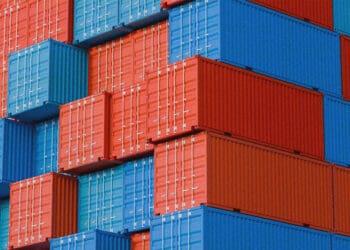At any given time on earth, an estimated 25 million people are forced to work against their will. The human rights atrocities alleged in China’s Xinjiang Uyghur Autonomous Region have rightly generated outrage and political action. New laws coming into effect in the U.S. this year and Europe next year aim to strip the global supply chain of products made with forced labor. Erika Peters, head of supply chain risk management at Exiger, looks at the impact of the U.S. law.
Modern-day slavery is rife. An estimated 40 million people are affected at any given time, including about 25 million involved in forced labor, according to the most recent estimates from the International Labour Organization. One in four victims of modern slavery are children.
Slavery affects every country in the world and is present at almost every stage of the supply chain — from the sourcing of raw materials to the manufacturing of goods, right through to shipping and delivery. It’s a critical issue that has demanded attention for the past several decades.
But nothing has caught the world’s attention like the atrocities in China’s Xinjiang Uyghur Autonomous Region (XUAR), where allegations of torture, forced labor and genocide of around 1 million Uyghurs have emerged.
In response, leaders around the world have sought to attack this issue. The bipartisan Uyghur Forced Labor Prevention Act (UFLPA) went into effect in the U.S. in June 2022; the law subjects goods from China to stringent inspection and potential seizure, particularly if the goods originated wholly or in part from XUAR.
And in Europe, the UK Modern Slavery Act and German Supply Chain Act, which both ramp up expectations of organizations to understand their multi-tier supply chains and increase the penalties for not doing so, go into effect at the beginning of 2023.
The high human toll of cheap goods
Businesses often turn to suppliers with low production costs to maximize profit. Using offshore suppliers in regions where labor is exponentially less expensive than in their home country allows businesses to maximize profitability and meet consumer demand.
However, the reality is that these low labor costs are often only possible due to a lack of human rights regulations — or at least regulations that aren’t enforced. Many workers who make the products we consume daily are not paid a living wage, if any wage at all.
Many countries around the world are guilty of human rights offenses, but the situation in Xinjiang is extreme. China has been accused of committing crimes against humanity against the Uyghur population, with an estimated 1 million Uyghurs detained against their will in “re-education camps,” the same region where new factories have since been built.
With cotton from XUAR accounting for 20% of the world’s cotton supply and 85% of Chinese production, it’s highly likely that most supply chains contain traces of products originating in the region.
Impact of UFLPA on business
Stringent enforcement of the UFLPA aims to reduce the role of American companies in these human rights offenses. Under the UFLPA, any goods labeled “Made in China” that are made of cotton, refined metals, circuit and polysilicon are subject to inspection and seizure upon their arrival in the U.S. If businesses fail to comply with UFLPA standards, U.S. Customs and Border Protection (CBP) are instructed to seize all shipments containing illegal products.
Companies should recognize that they must overhaul their supply chains and compliance practices to adhere to the new standards — or risk losing billions of dollars in confiscated products and being subject to sanctions by U.S. law.
The fashion, computing and alternative energy sectors will be the most affected as they have heavily relied on the low labor costs in XUAR to manufacture goods cheaply. The UFLPA means they will need to find new alternatives to production, possibly resulting in a massive reshoring of production methods in these industries and ultimately, higher product costs for the end user.
A more ethical future for global commerce
Because the UFLPA is sanctionable only in the United States, some have questioned if it will be effective — and the short answer is yes.
But here’s the long answer: China accounts for a substantial portion of U.S. imports — $542 billion in 2021 alone — so significant reduction of U.S. exports will cause China to lose one of its largest buyers. Not only will China’s export market suffer but the new regulations also create an opportunity for emerging markets in Asia, Africa and the Americas to take its place.
The UFLPA is combating forced labor from a domestic standpoint. While the act was implemented by Congress to regulate U.S. imports, it also sets the tone for China and other countries to highlight where the U.S. stands on forced labor practices. This tone is in line with consumer expectations: A Barclays study on ethical business and sustainability in retail reported that 63% of consumers want to see more ethical practices from companies.
Compliance with these regulations will force companies to fully understand their supply chains, improving supply chain resilience while creating opportunities for growth and economic rebalancing. Today’s supply chains are multidimensional and complex, making it harder for companies to identify the origin of goods and labor. Without robust supply chain tracing, companies risk the seizure of billions in products and significant corresponding revenue loss.



 Erika Peters serves as Global Head of Third Party & Supply Chain Risk Management for Exiger. With two decades of expertise across Compliance, Regulatory Affairs & Internal Audit, at Exiger, Erika helps its largest clients solve critical risk management challenges with tech-enabled solutions to drive transparency, process efficiencies and output consistency — reducing time and providing actionable intel.
Erika Peters serves as Global Head of Third Party & Supply Chain Risk Management for Exiger. With two decades of expertise across Compliance, Regulatory Affairs & Internal Audit, at Exiger, Erika helps its largest clients solve critical risk management challenges with tech-enabled solutions to drive transparency, process efficiencies and output consistency — reducing time and providing actionable intel. 







